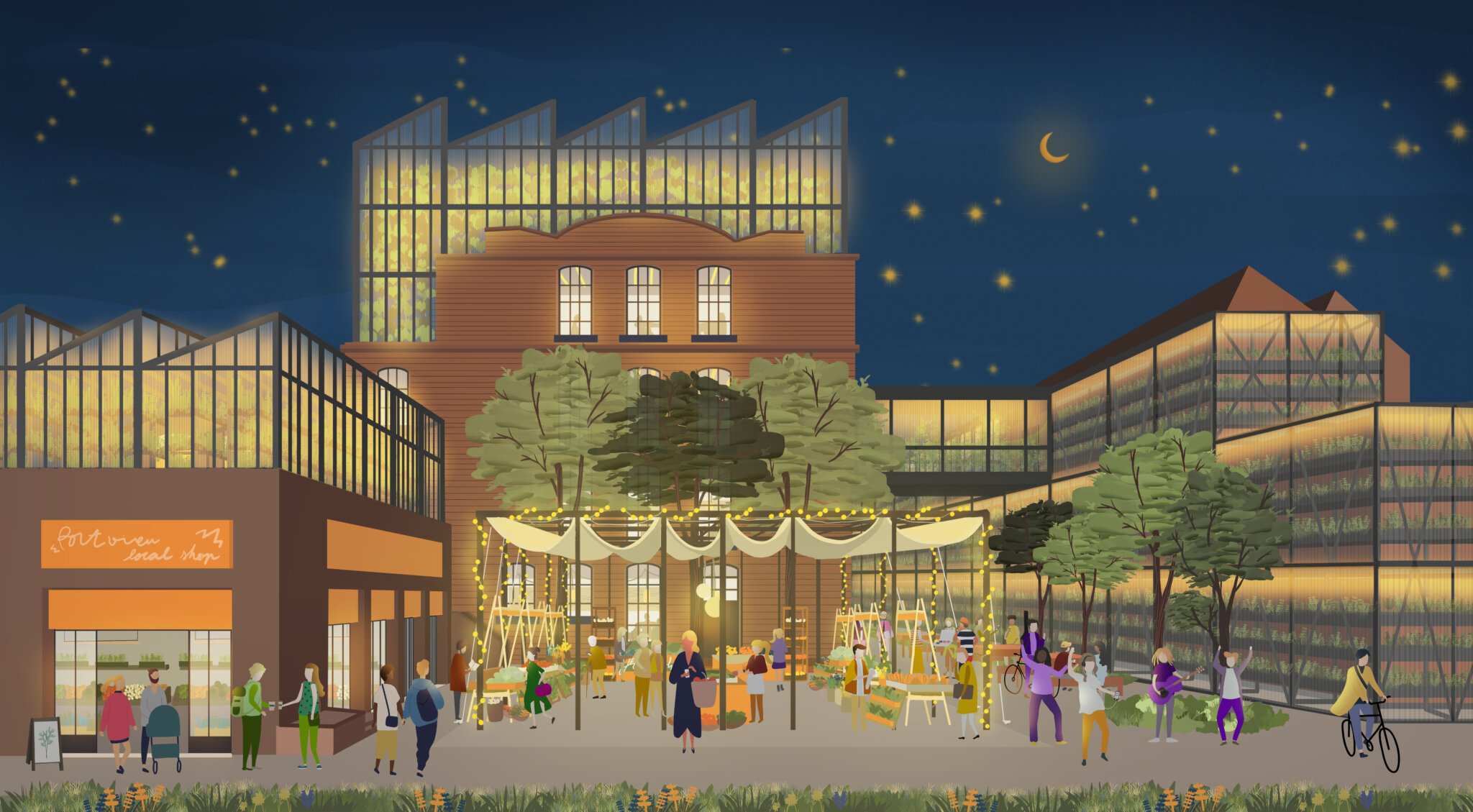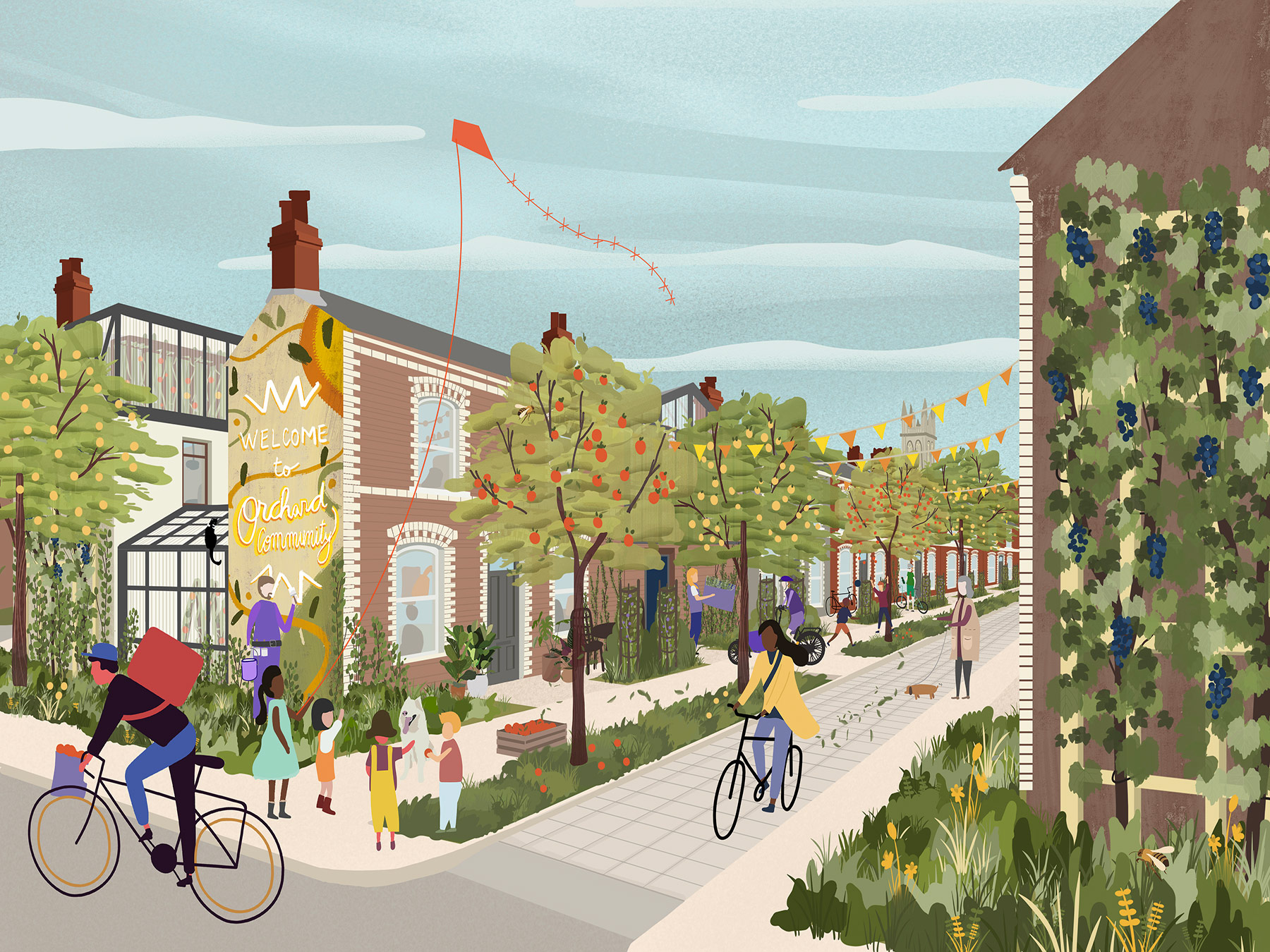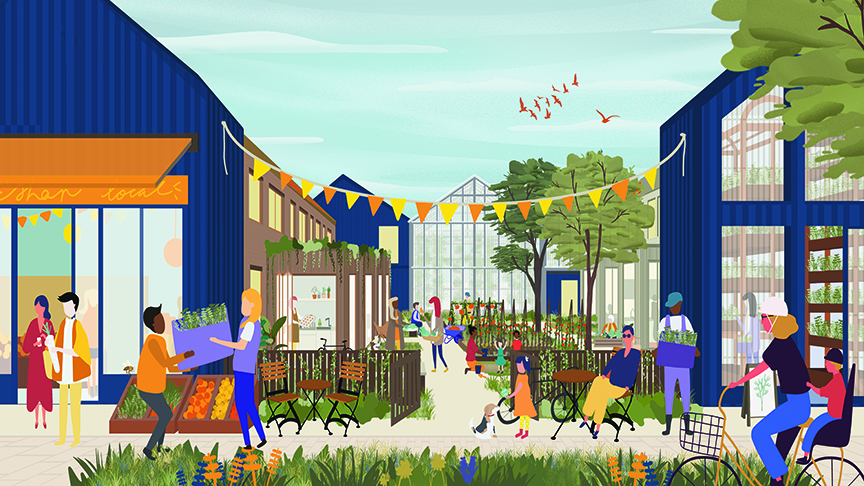M-NEX
A study to discover how spatial interventions in our neighbourhoods can maximise the productive capacity for food growing and energy production in an urban context.

M-NEX is a study produced together with Queens University Belfast which examines how spaces dictate food and energy technologies. It visualises and measures how various residential and commercial buildings and public spaces in East Belfast can be adapted toco-locate synergic processes and enhance economic opportunities.
Spacial Intensification
A toolkit for spatial intensification through various typology design and the interlink between the scales from bio region to front garden was developed to inform a series of designs for maximising food and energy production. These intensification strategies were measured and compared to the baseline study to assess how the nexus of food-water-energy is affected by maximising the neighbourhood’s productive capacity.
Findings
While the increase in demand for energy and water in the neighbourhood is notable, the maximisation of productive capacity should be seen to increase economic intensity through a food economy, bring food growing and employment close to where people live and for new lifestyles to emerge. Consequently, new synergies for energy and waste valorisation are created through energy reuse and closing of waste streams.
Furthermore, new models of operation, ownership and education are imagined that transform the cultural, social and economic opportunities available to residents in a neighbourhood constrained by inertia. These design outputs were used to engage stakeholders with the most radical form of intervention – the possible,
rather than the probable – to advocate for the transformative change required to create climate positive futures for the residents of our cities.
Location: Belfast Living Lab, Ireland
Collaborators: Queens University Belfast

